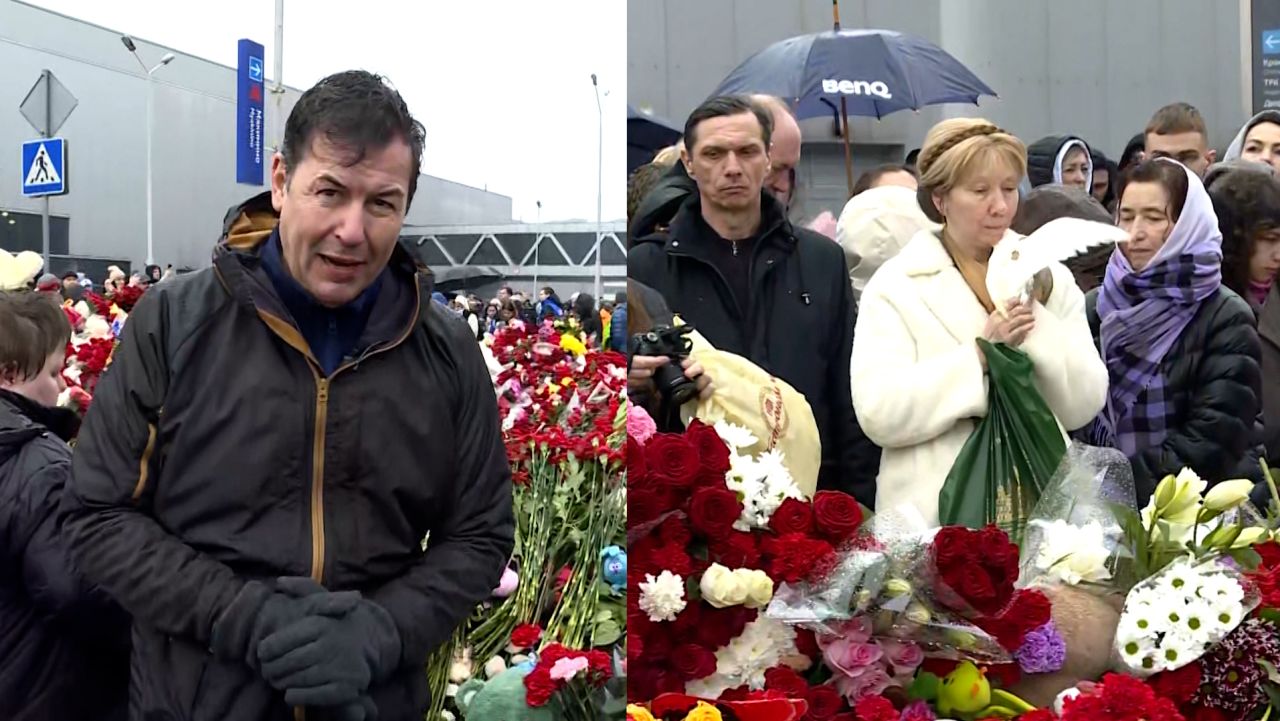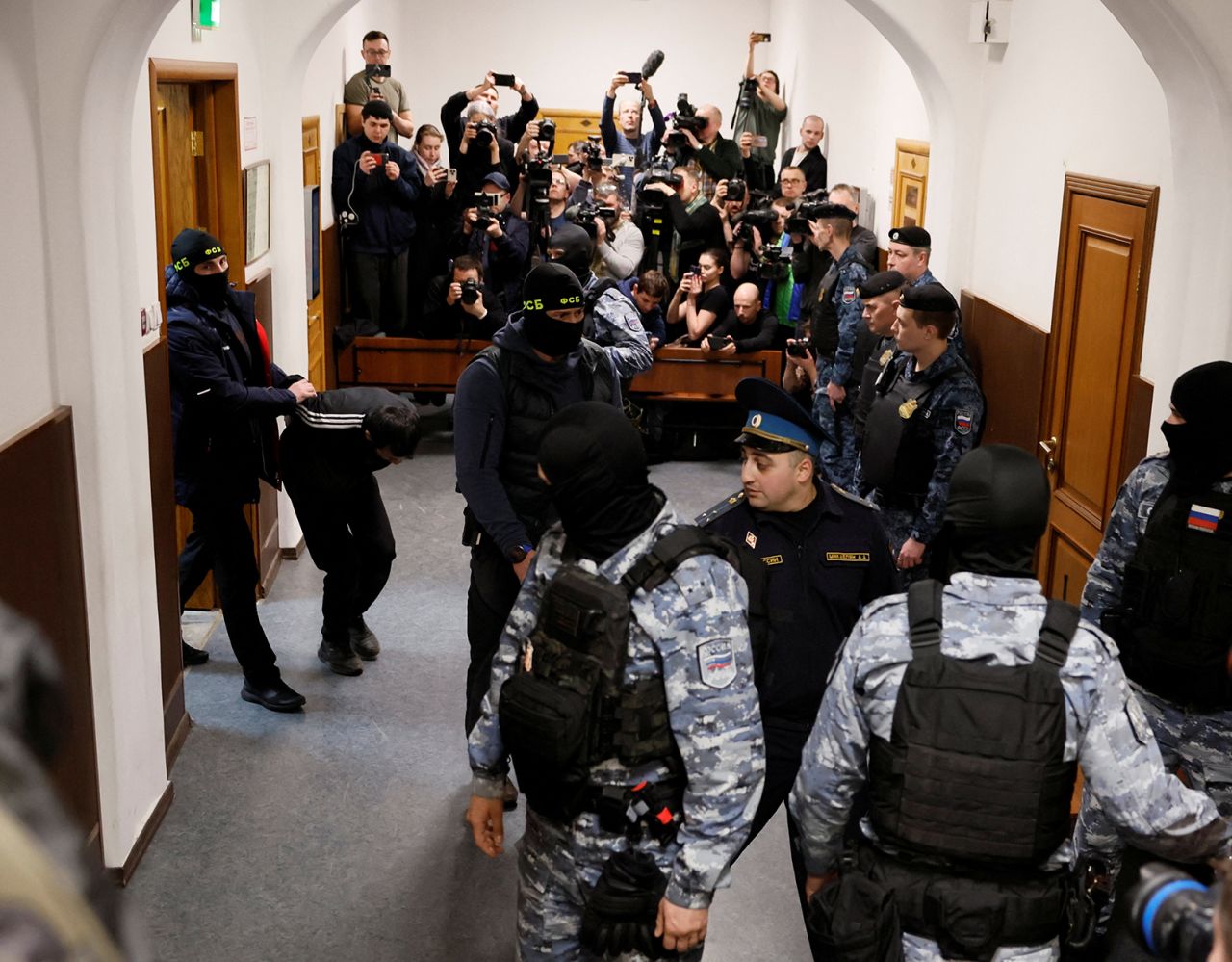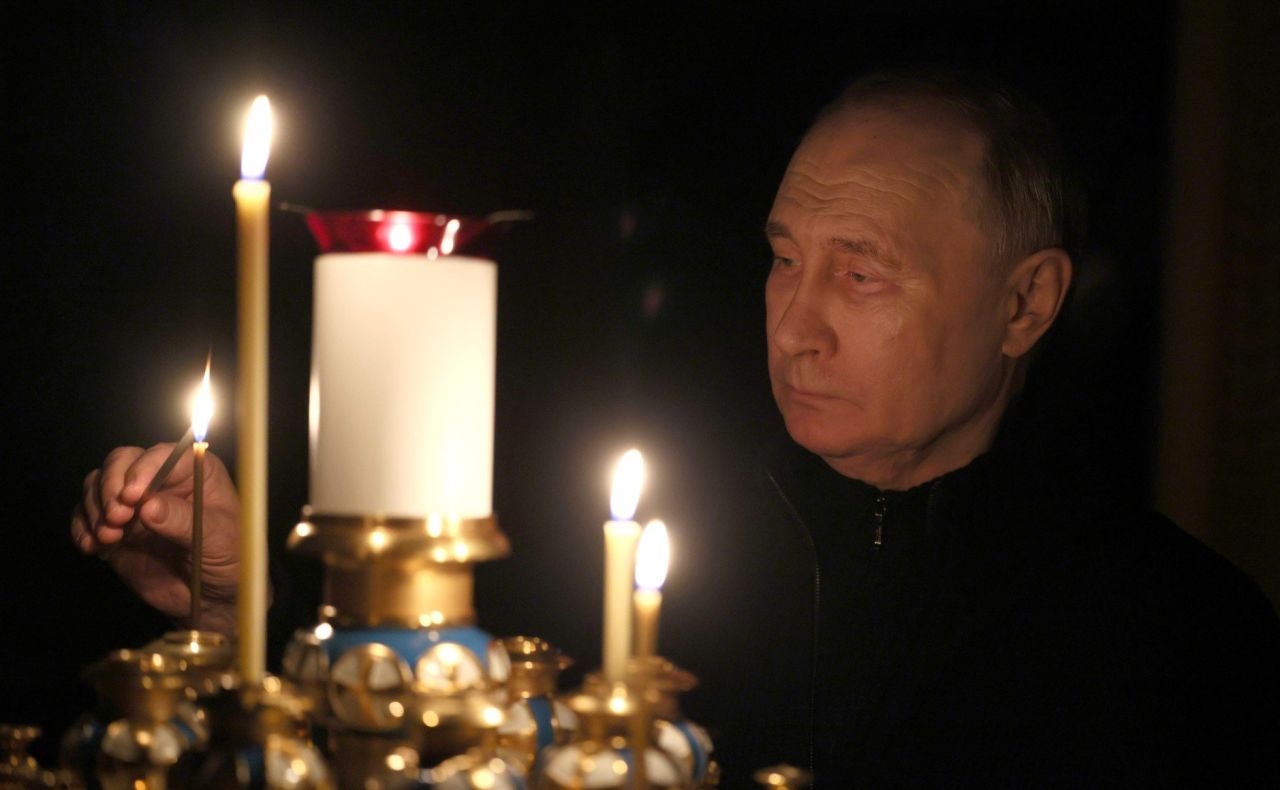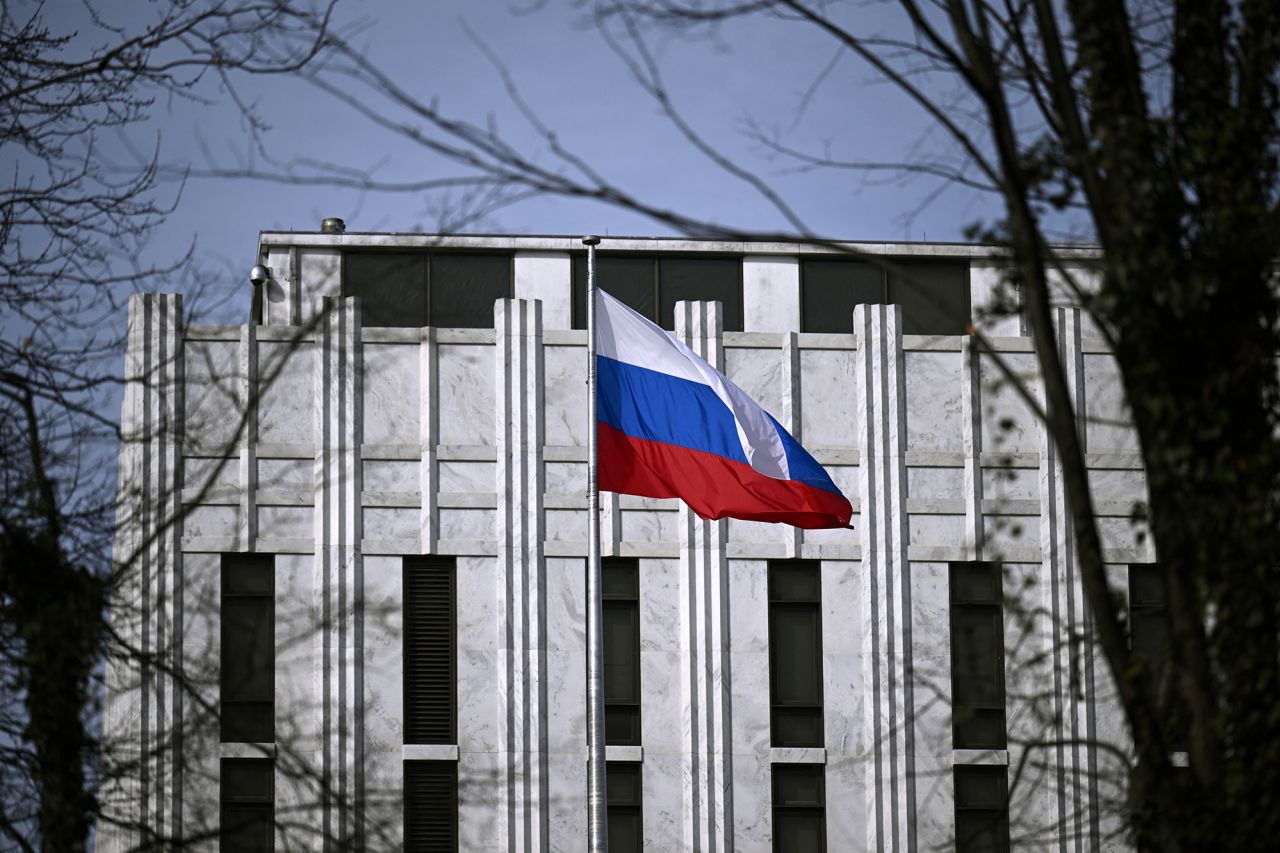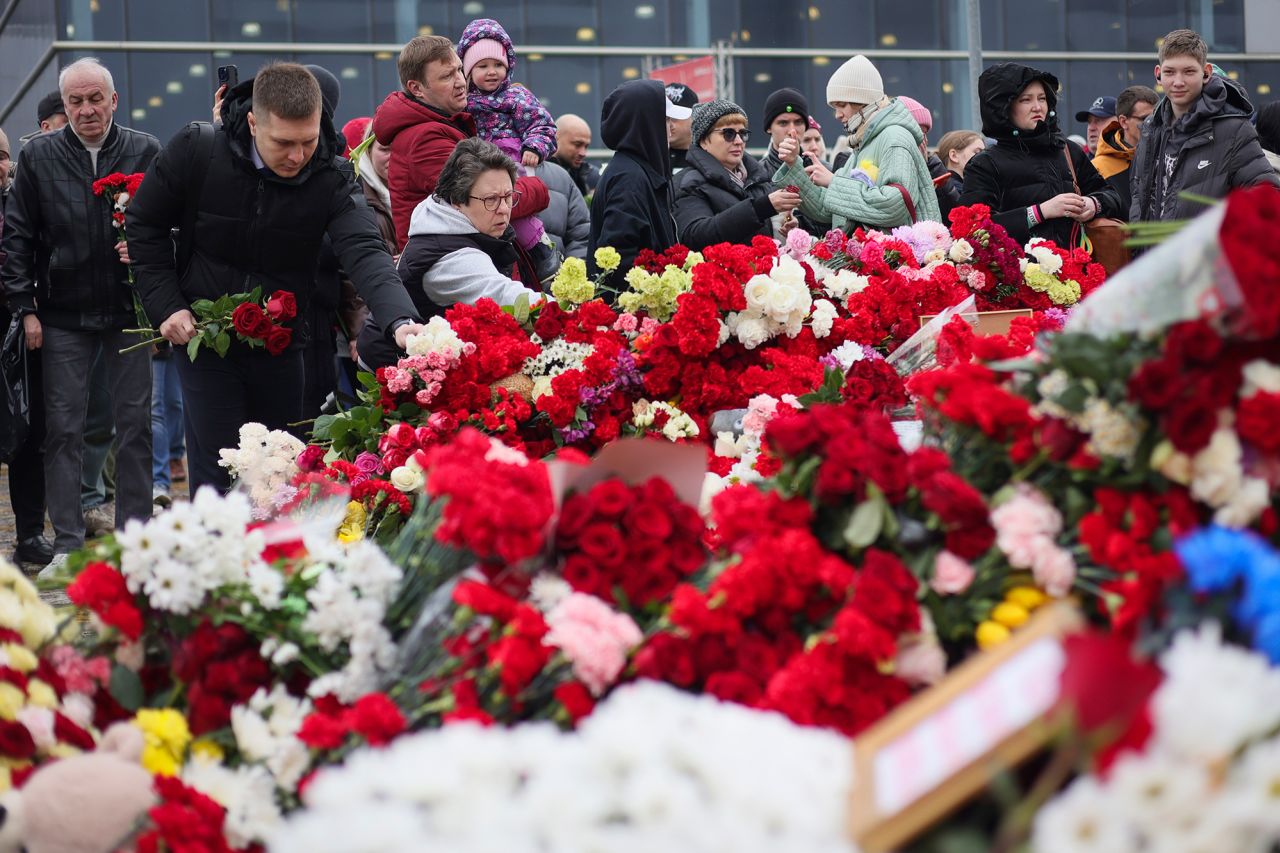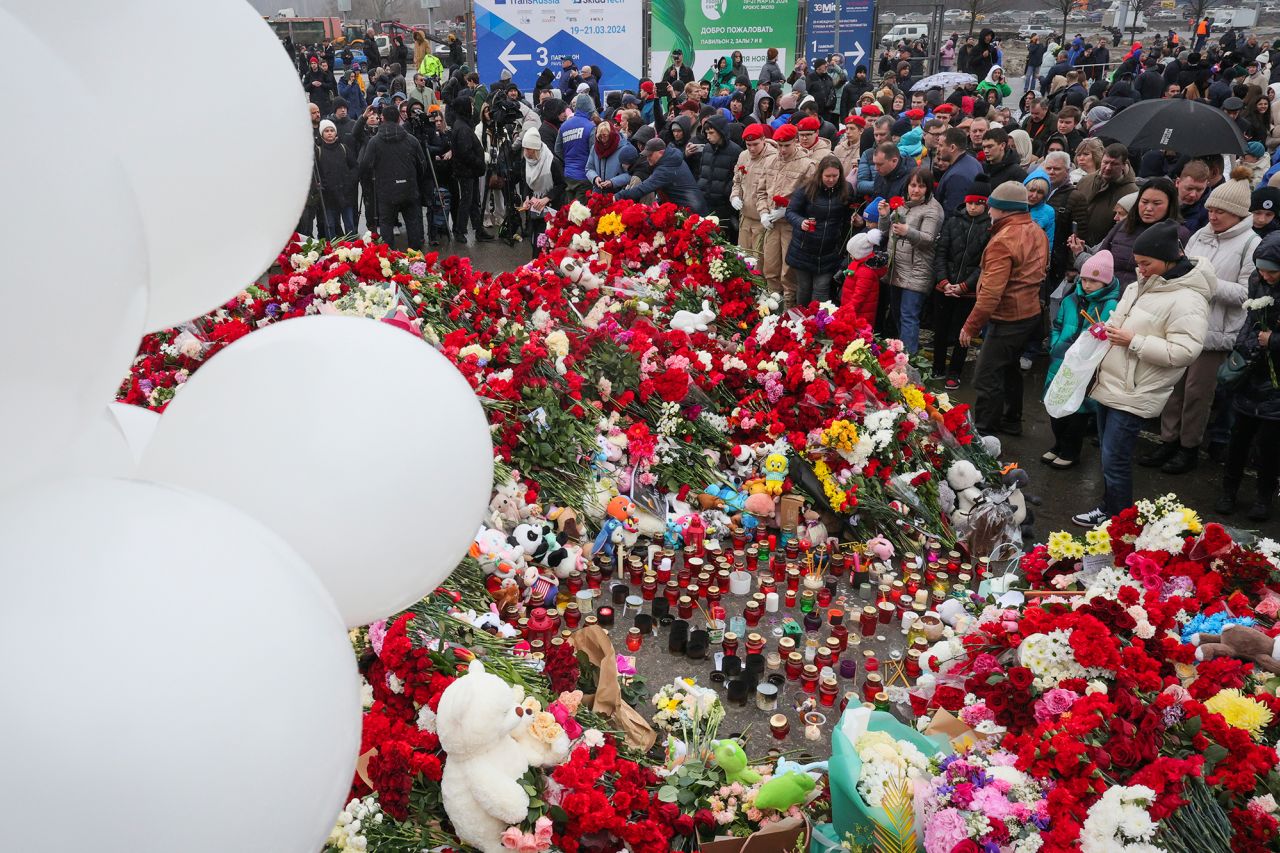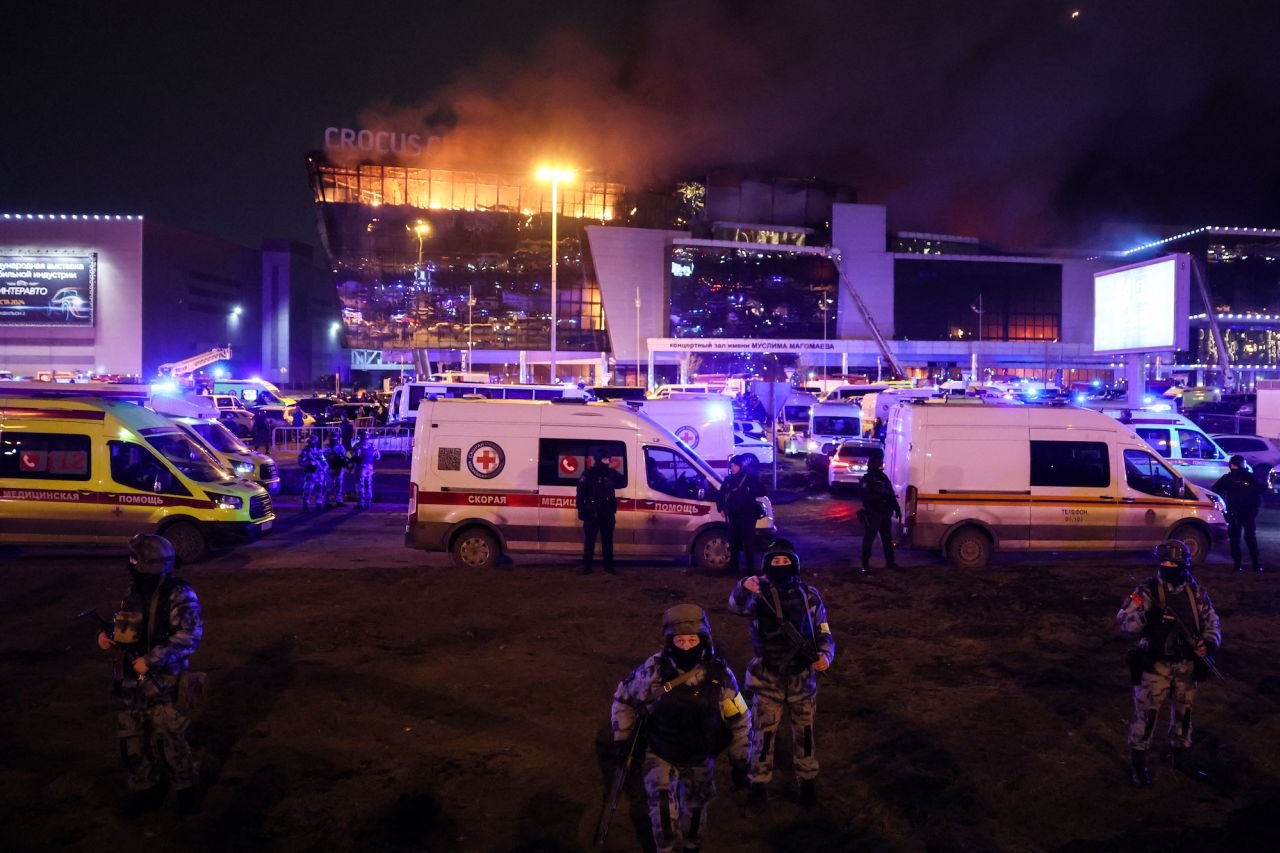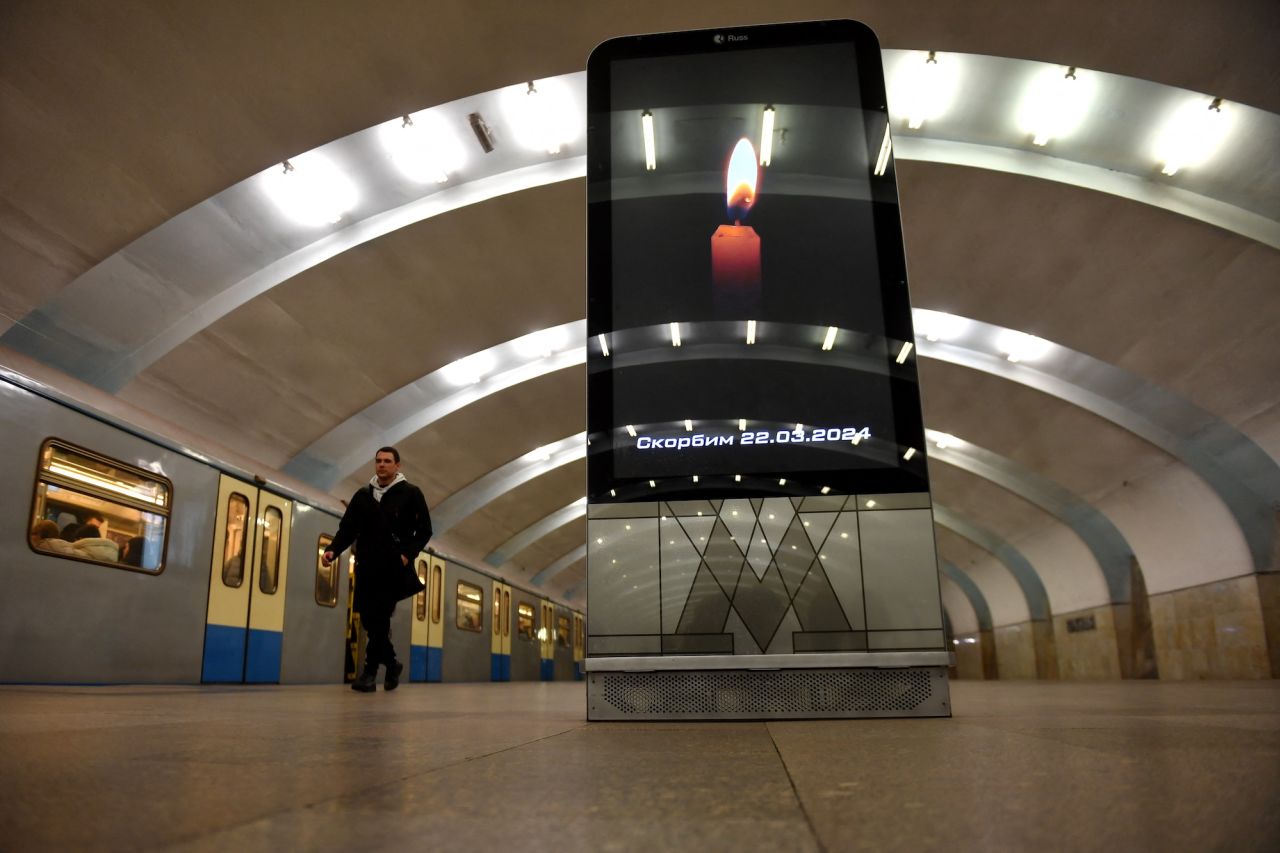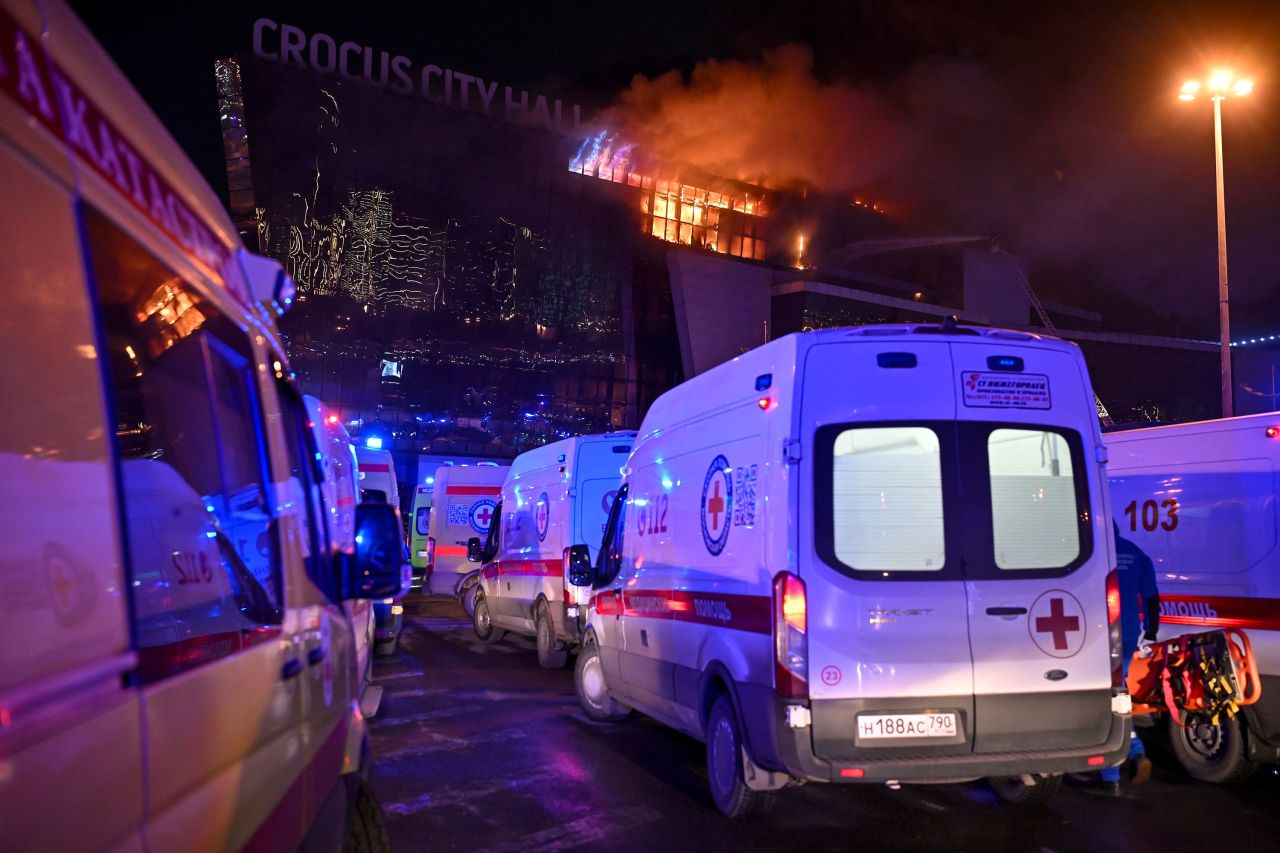ISIS-affiliated news agency Amaq released a graphic video on Saturday that purports to show Friday’s attack at a concert hall in suburban Moscow recorded by one of the attackers, suggesting the perpetrators had a direct link to ISIS in order to be able to send the video.
CNN has geolocated it to the concert hall and notes that its identifying metadata has been erased.
The video, which is about 90 seconds long, shows four attackers with their faces blurred and voices distorted in what appears to be the Crocus City Hall complex.
The video shows one attacker signaling to another gunman, who then walks past a door where people are hiding and opens fire on them.
Bodies and blood can be seen on the floor, with fire raging at a distance.
The video also shows one of the attackers slitting the throat of a man lying on his back.
The video ends with the four attackers walking away inside the building as smoke can be seen at a distance.
On Friday, ISIS claimed responsibility for the attack, according to a short statement published by Amaq.
On Saturday, Russian President Vladimir Putin suggested Ukraine was behind the attack, stating the perpetrators had “tried to hide and moved towards Ukraine, where, according to preliminary data, a window was prepared for them on the Ukrainian side to cross the border.”
Ukraine has vehemently denied any connection to Friday’s attack.



